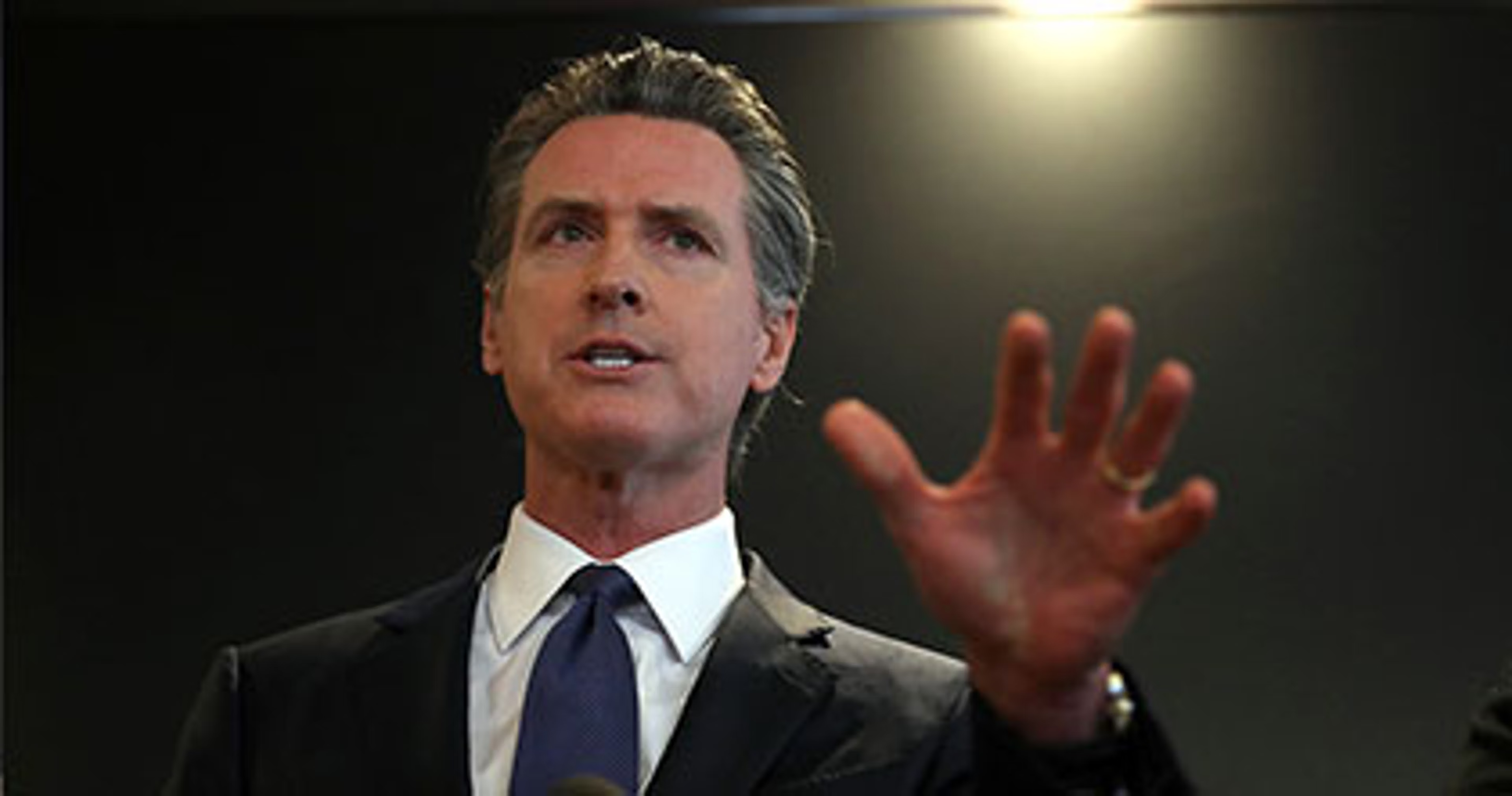Weekend Roundup: COVID-19 Crisis Is Forging A New Generation of Leaders

California governor Gavin Newsom. (Getty)
While populist leaders like President Donald Trump (or U.K. Prime Minister Boris Johnson or Brazilian President Jair Bolsonaro) stumble indecisively and burn up invaluable time as the coronavirus spreads, mayors and governors are impressively displaying the next bench of leadership on its way up. Competent and experienced leadership for the future, driven pragmatically by data and science and not ideology, is being forged in the crucible of dire circumstance.
In the United States, as the self-absorbed president spars with his own top health officials while shifting course from day to day, New York Governor Andrew Cuomo, Los Angeles Mayor Eric Garcetti and California Governor Gavin Newsom, among others, are decisive, clear and consistent in their messaging, authentically empathetic and consoling in temper, and swift in deploying the often scarce resources at their disposal.
Gov. Newsom has even gone the next step. Though thankful for any federal help, including the thousands of additional hospital beds created by the U.S. Navy’s enormous Mercy ship as well as temporarily constructed facilities across the state, he cannot wait for weeks, no less months, for America to ramp up new supply chains for medical equipment and protective gear as peak infection approaches. He has corralled California’s big tech firms, from Apple to Google and Tesla, into his effort to provide masks and ventilators, with Elon Musk alone providing 1,000 ventilators. And instead of bashing the Chinese, the governor is reaching out to work with them directly to procure critical supplies since production capacity there was ramped up during the peak of China’s own crisis. California has already chartered planes to convey these supplies across the Pacific with no time to waste. The state’s relationship with the modern Middle Kingdom is “special,” Newsom noted, not least because so many Asian immigrants reside in California.
Utilizing contacts with the Chinese leadership developed since 2014 through our global 21st Century Council, which has met with President Xi Jinping and Premier Li Keqiang several times, the Berggruen Institute is aiding in this effort. We see it as an embryo of the new platforms of cooperation around convergent interests with China — “a partnership of rivals” — including on climate action, that are imperative for the future despite sharp differences with Beijing over the suppression of free expression or the heinous reeducation camps for Muslim Uighurs.
The pattern of bottom-up initiative from cities and states has been seen before in American history. During the Progressive Era at the turn of the 20th century, when the U.S. was facing a yawning inequality gap in the midst of the rapid technological change of the industrial revolution, it was mayors and governors who led the charge. Progressive leaders in those days promoted greater citizen participation in governance while also bringing knowledge into the system by handing over administration of government from cronies to non-partisan experts, such as professional city managers and regulatory commissions that were established to regulate the railroad and banking trusts as well as utility monopolies. Antitrust, child labor, women’s suffrage and health and safety laws all first emerged in cities and states before later percolating up to the national level.
States have already been moving on their own to address today’s social inequality and technological disruption, conditions not dissimilar from those a century ago. Laura Tyson, who was head of the President’s Council of Economic Advisers during Bill Clinton’s time in office, and Lenny Mendonca, a top adviser to Gov. Newsom, have labeled this approach “progressive federalism” and are promoting it among a range of policies. The coronavirus pandemic adds the new feature of global interdependence to the challenge, as the deep links with China illustrate.
In the midst of crisis, it is always difficult to imagine what life will be like on the other side. But what we are seeing so far coming from the leadership of cities and states is a hopeful sign that the test of resilience in the worst of times is the best preparation for the next round of challenges ahead.
Also in The WorldPost this week, we discuss how Taiwan successfully tackled the coronavirus pandemic with the former premier, Jiang Yi-huah. It was able to do so, says Jiang, out of a combination of factors: the previous experience with SARS, a robust and universal public health infrastructure, a government that has earned trust through performance and transparency, widespread citizen awareness and participation and a cultural disposition toward community over the individual.